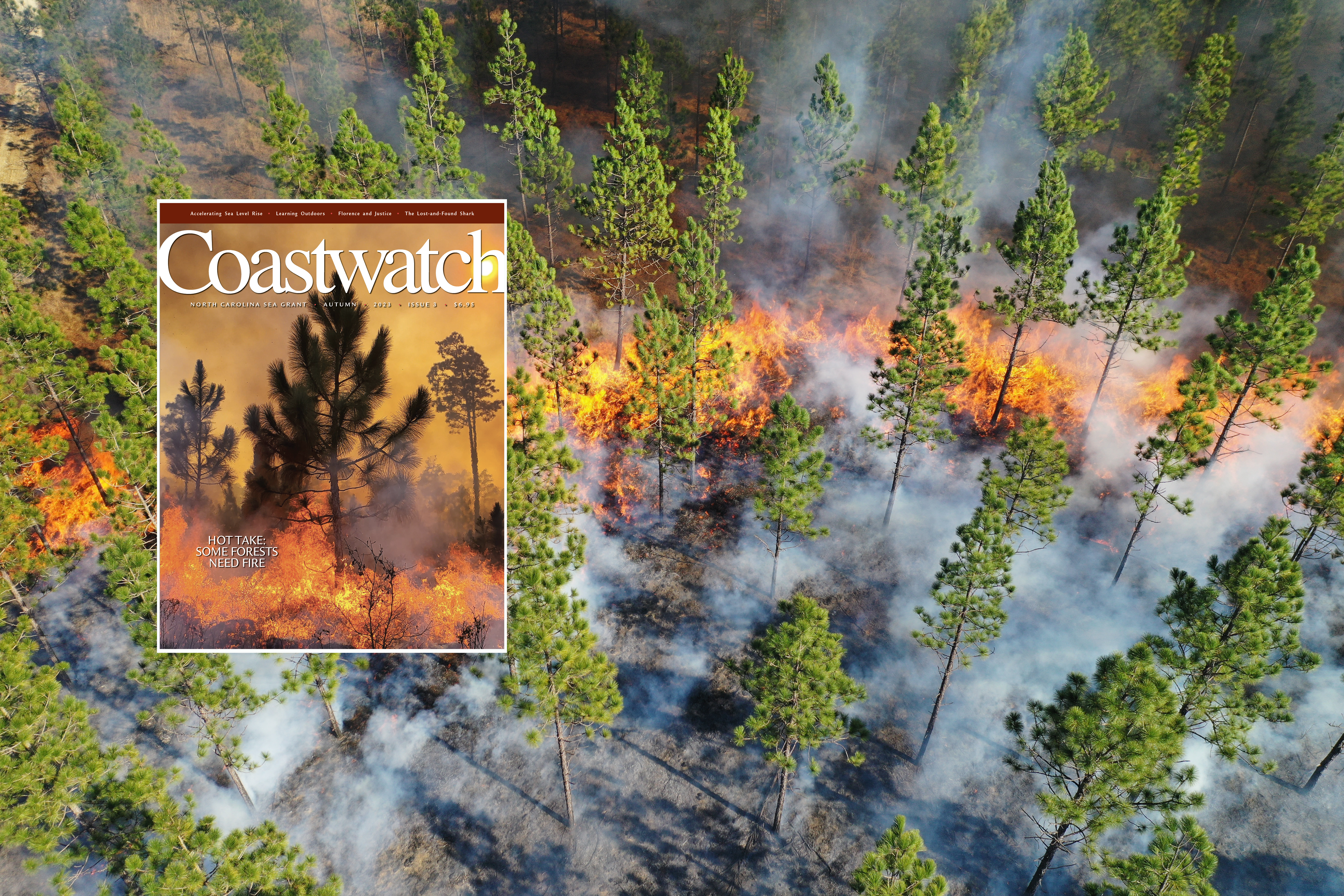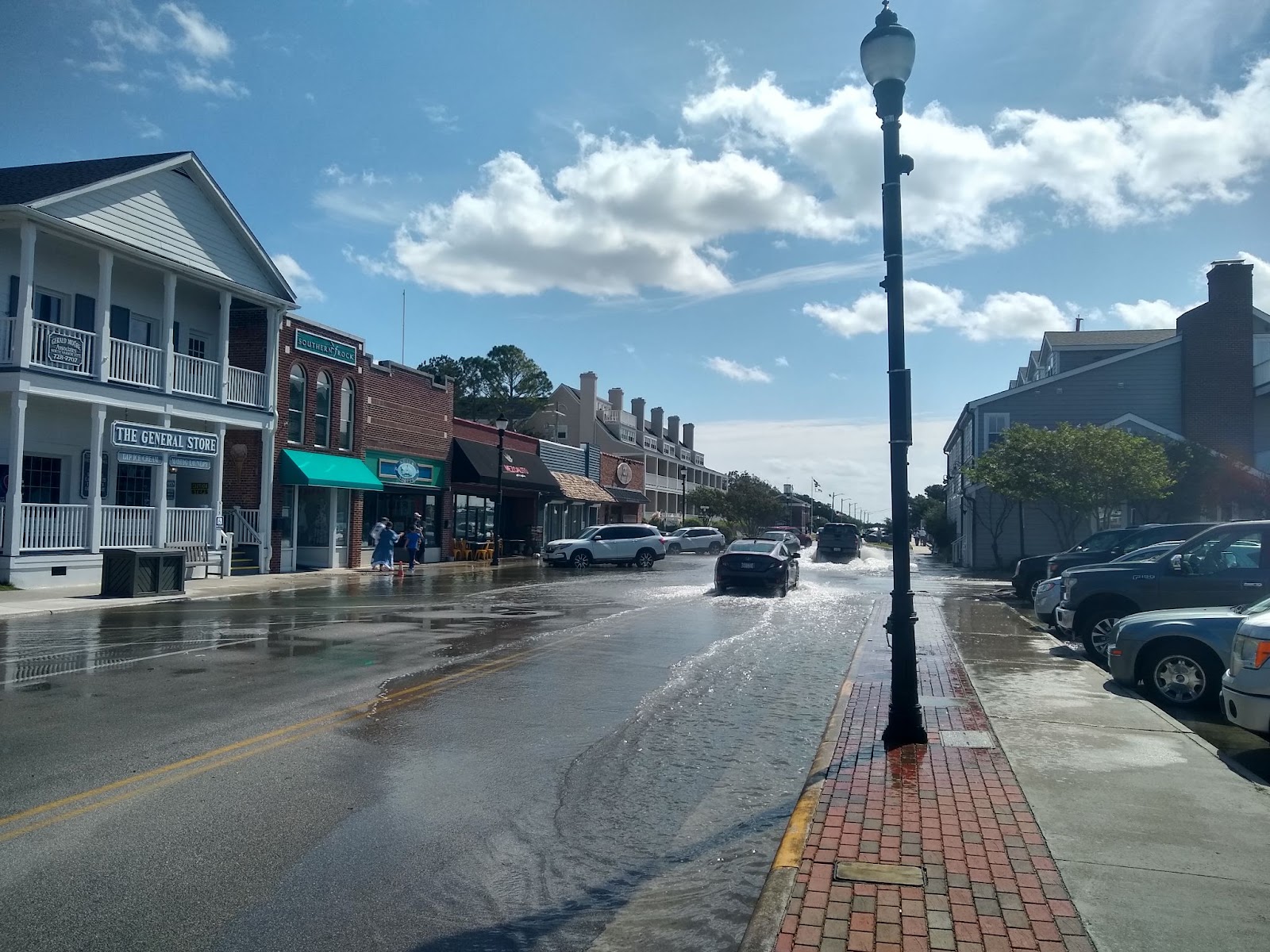Coastwatch Covers Accelerating Sea Level Rise, a New Safety Alert on PFAS, and Much More

For Immediate Release
Contact: Dave Shaw, dmshaw@ncsu.edu, or Katie Mosher, kmosher@ncsu.edu.
The Fall 2023 issue of North Carolina Sea Grant’s award-winning Coastwatch magazine features new research showing accelerating sea level rise on the Southeast and Gulf coasts, a new safety alert on PFAS in the Cape Fear River, and an in-depth look at environmental justice and disaster recovery. The latest edition also includes the story of a tagged shark that resurfaced 23 years later, as well as a look at prescribed fires and much more.
First, from Cape Hatteras to the Gulf, sea level rise — at three times the global average — has broken records over the last dozen years, according to the latest research to document the effects of climate change on our coast.
This past summer, the North Carolina Department of Health and Human Services released advisories on limits for the consumption of fish from the middle and lower Cape Fear River due to the presence of PFAS, and in some cases, as we outline in our safety alert, the department recommends no consumption whatsoever.
“Hot Take: Some Forests Need Fire,” the Fall issue’s cover story, looks at prescribed burns and their benefits to the longleaf pine ecosystem — which may include protection and recovery from wildfires.
In addition, the Fall 2023 issue features an interview with climate resilience planner Olivia Vilá, who discusses environmental justice and post-hurricane response from nonprofits in Wilmington, North Carolina.
This issue’s “Sands of Time” is the tale of a lost-and-found sandbar shark tagged in North Carolina waters and that recently resurfaced, 23 years later, off the Florida Keys.
“The Untapped Resource” explores how environmental education can unlock a new source of community resiliency, as children learn and pass along what they discover to adults.
Also in this issue: Scientists have combed through historical data to better understand how oyster reefs have changed in North Carolina’s Newport River Estuary — and they found that oyster habitat has shrunk by 75%.
New research shows that North Carolina’s resident population of bottlenose dolphins live in clusters in our coastal waters.
Plus: if you want to know a fish’s age, look into its eyes.
And people love the taste of catfish skin chips, depending on how you prepare them.
As always, the Fall 2023 issue includes a special selection of Mariner’s Menu recipes just for the season — and more.
###
Coastwatch online: ncCoastwatch.org
In print: go.ncsu.edu/Subscribe-Now. All new subscriptions begin with the Fall 2023 issue.
Permissions: Some content that appears in Coastwatch is available to republish. Email dmshaw@ncsu.edu.


